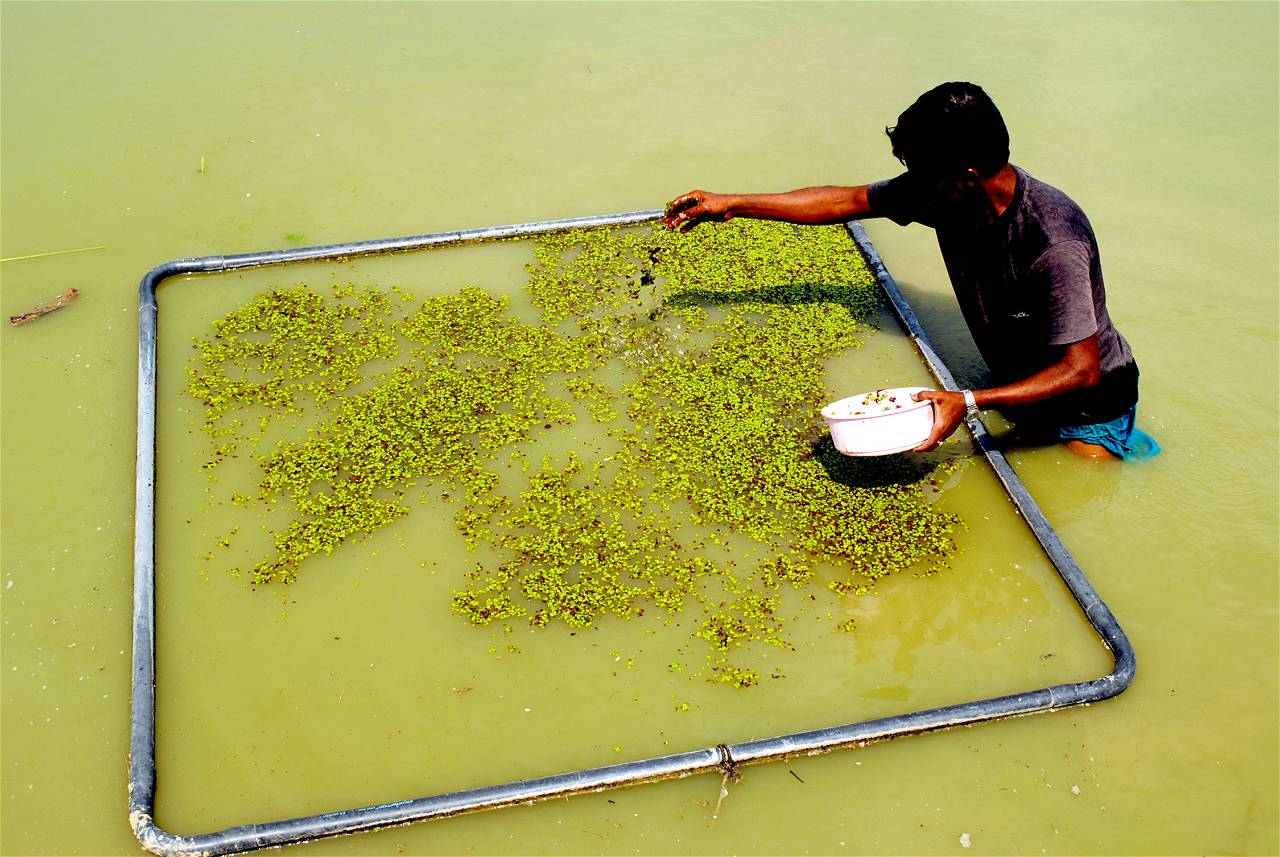
Being cold-blooded aquatic animal, fish needs special care during winters. According to Dr. Meera D. Ansal, Dean, College of Fisheries, Guru Angad Dev Veterinary and Animal Sciences University, Ludhiana, farmers must maintain adequate water depth (5-6 feet) in the ponds to provide enough space to the fish for hibernating in the warmer bottom zone during winters.
How to take care of fish & pond in winters
Below we have given few tips for those involved in fish farming;
Regular addition of tube well water at dusk helps in keeping the surface water warm during nights.
As day length and light intensity decreases during winters, oxygen level in the pond also declines due to poor photosynthetic activity. The situation further aggravates during continuous cloudy days. Therefore, the farmers must aerate the ponds either by adding fresh water or by using aerators, especially during early hours of the day.
Regular monitoring of water pH is vital during continuous cloudy days, which may fall to harmful levels due to poor photosynthetic activity and subsequent accumulation of carbon dioxide. If the water pH falls below 7.0, add lime @ 100kg/acre in two installments.
The trees around the pond should be trimmed so that direct sunlight can fall over the pond and leaves do not fall in to it, which otherwise adds to the organic load and deteriorate the water quality. Further, shaded ponds are more susceptible to oxygen depletion during winters.
As feed intake of fish also decreases during winters, feeding must be reduced gradually by 25 to 75% and finally stopped in December. Excess feed remains unconsumed and accumulates at the pond bottom; and deteriorates the water quality.
Also reduce/stop fertilizing the ponds with organic manures, which leads to unwanted accumulation of organic matter owing to reduced microbial activity. Protection against predatory birds is also important in this season to prevent stock loss.
Presence of algal blooms is another serious problem during winters as they block sunlight penetration in to the water column. Under such condition, it is recommended not to add any inorganic fertilizer in the pond. Algal bloom can be controlled by application of either lime @ 50-100 kg/acre or potassium permanganate (KMnO4) @ 2-3kg/acre. The farmers are advised to check the water pH before lime application. In case it is above 8.5, they shall not use lime. Surface algal mats can be removed by manual skimming. Dead vegetation from shallow areas of the pond, if present, shall also be removed.
With onset of winters, various fungal, bacterial and parasitic diseases such as fin rot, gill rot, EUS and argulosis could appear in the fish. Hence treat the pond with CIFAX @ 400 ml/acre and KMnO4 @ 1-2 kg/acre or limestone @ 50-100 kg/acre as prophylactic measures. Salt application @ 50-100 kg/acre also provides protection against diseases. In case of disease outbreak, consult an expert for diagnosis and treatment.
Do not stock the ponds during winter months and market fish over 500g to create enough space for stocking new fingerlings in the month of March/April.
Also Read - Fish Farming Business: Significance And Benefits











